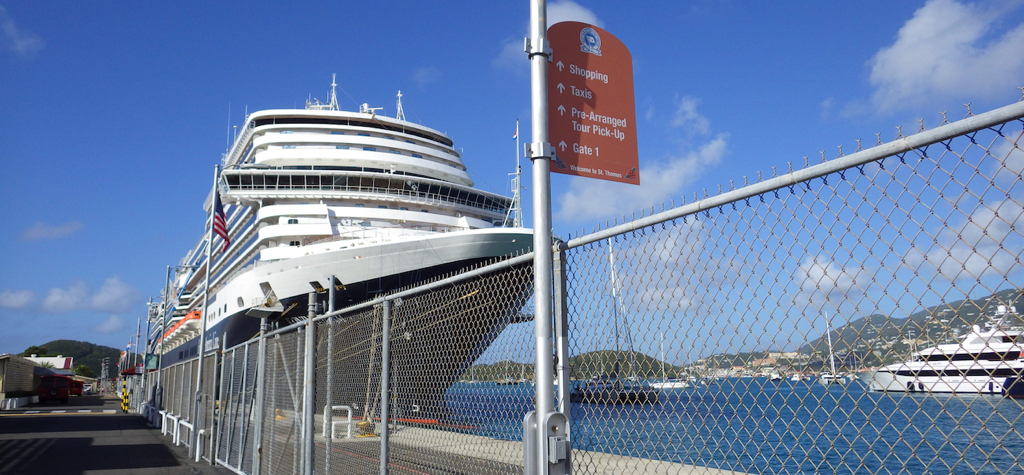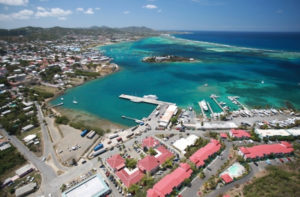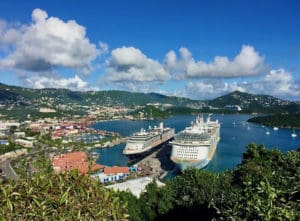
VIPA and WICO are competing against each other and VIPA is the clear winner, based on financial results, accountability and clarity of purpose. WICO’s litany of losses only grows, including operational losses, a $7.35 million tax bill from the government that it is part of and being fired this year as manager of the Havensight Mall.
“As St. Thomas struggles to maintain its position as the busiest cruise port in the Caribbean, it is represented by two different government agencies who are often in competition for the same cruise traffic. VIPA and WICO unnecessarily duplicate efforts and resources to attract the same clientele,” Gov. Albert Bryan Jr. said in his 2018 campaign platform when running for governor. “The history and current state of the two entities represent a stark contrast in territorial management and results.”
Candidate Bryan proposed merging the two agencies. Then, earlier this month, Governor Bryan said his administration has “too many ducks on the table” to address this festering problem.
VIPA is a profit-making, public and relatively transparent organization. The Source reviewed VIPA’s financial reports back to 2012, and it consistently produces positive cash flows, including the fiscal year that ended September 2019. The operating budget for VIPA in 2019 was just under $50 million.
WICO has revenues are near $9 million and had negative cash flow of about $4 million per year, according to the last audited financial report produced, for fiscal year 2017.

WICO is mired with issues that stem from a convoluted legal status. It took two lawsuits and a directive from Bryan before WICO adhered to public meeting and records laws. Last March, in its first public meeting, the board voted to pay $3,500 a month for a St. Thomas apartment for the governor. This action continues today in spite of the Department of Property and Procurement rejecting paying additional housing expenses for the governor back in 2015.
WICO was sold to the Government of the Virgin Islands for $54 million dollars in 1993. The Public Finance Authority acquired the dock area, while the Havensight Mall was sold to the Government Employees Retirement System for $32 million. WICO had been contracted by GERS to manage the mall for about $400,000 per year. In October, GERS announced that it will not renew the WICO management contract, and the agencies are working together through a six-month transition period. No new management company has been announced.
Although WICO is part of the Virgin Islands Public Finance Authority, it owes the V.I. Government $7.35 million for payments in lieu of taxes, known by the acronym PILOT. Joseph Boschulte, who was then WICO chief executive officer, told a 2016 Senate Finance Committee budget hearing, “Since the opening of the [VIPA-owned] Monsanto Pier in 2006 and the attendant erosion in revenues, WICO has been unable to meet its annual PILOT obligation.” The Monsanto facility opened in Crown Bay and two major cruise lines were given lower fees than at WICO in exchange for long-term berthing agreements, he said.
According to the 2017 financial reports, WICO paid “contributions” of $700,000 to the government for 2016 and 2017. When asked about those payments, WICO Chief Financial Officer Cheryl Brown-Peterson said the contributions reported are the PILOT.
The $7.35 million is a debt between two divisions of the same government, evidently accumulated between 2006 and 2015. WICO officials have not said when or if it will be paid.

Quoting the WICO Financial Report, “The company is in a negative working capital position as of September 30, 2017, mainly due to the outstanding liability for contribution to the government [PILOT]. The Company is a component unit of PFA [which in turn is a component unit of the government] and would need PFA’s financial support to address its working capital deficiencies should the government demand payment of past due PILOT.”
VIPA is an autonomous government agency, created by act of the Legislature of the Virgin Islands in 1968, which transferred ownership of every major seaport in the territory to VIPA except the WICO dock on St. Thomas. Based on a model first used manage the ports of New York and New Jersey, VIPA, according to its website, “is expected to be financially self-sufficient, and does not receive nor does it contribute any funds to the USVI Government. VIPA derives its operating revenues from user fees and rental fees charged to users of its airport and marine facilities. They are also charged with maintaining the harbors in the territory.”
The West Indian Co. Ltd., was originally founded in 1912 as a private Danish company. According to a centennial history of the company written by Georgiana Richards, when the United States bought the territory in 1917 the company was “granted a ninety-nine year concession to own, reclaim, dredge and dam areas of St. Thomas Harbor. The company also had the right to charge wharfage and warehouse fees.”
Bryan has sided with WICO on a key difference between WICO and VIPA, making a new Long Bay cruise ship dock a priority. Originally proposed by WICO in the 1990s, the Long Bay Landing project was promoted in a 2014 video presentation (see below) as a long-term benefit to the entire territory. The plan was then abandoned in 2015 by the WICO board, which cited “the potential negative impact this project could have on the quality of life of Virgin Islanders as well as the visitor experience given the proposed location.” In May 2019, Bryan listed the project as a top priority tourism goal. In October, acting WICO President Anthony Ottley said during Senate questioning, that the plan is now resurrected.
The only mention of the Long Bay project during the most recent WICO board meeting was a request by board members for accurate financial reports and cash balances in order to budget for it. The bulk of the meeting, as previously reported by the Source, was spent grappling with the uncertainty posed by the termination by GERS of Havensight management, although it represents a very small portion of WICO revenues.
When asked to list future projects for VIPA, Monifa Marrero Brathwaite, the agency’s public information officer, said, “Our priority moving forward is the continued upgrading our of port infrastructure to provide safe and modern facilities for our users. As entryways to our islands, the experience at our airports and seaports are the first and last impression many visitors have of our islands. VIPA’s priority projects include augmenting its U.S. Customs services provided at its busiest ferry port on St. Thomas – the Urman V. Fredericks Marine Terminal in Red Hook. Construction of a new CBP facility should begin early next year.”
Dredging also figures to be an important upcoming project, she said.
“The West Indian Co. Ltd. and VIPA submitted a joint Major Coastal Zone Permit application to dredge the inner and outer Charlotte Amalie Harbor. VIPA seeks permission to remove 255,118 cubic yards of material from the Charlotte Amalie Harbor. The Community Development Block Grant issued by the U.S. Department of Housing and Urban Development to the U.S. Virgin Islands Government has earmarked $23 million for this project. The dredging will allow the WICO dock in Havensight, St. Thomas, to accommodate the world’s largest ships – the Oasis-class vessels. If we cannot accommodate the Oasis-class at Crown Bay and WICO simultaneously, the cruise line will be forced to choose other ports in the Caribbean.”
Fewer freighters and cruise ships visiting the territory are part of a global trend. Since 2016, average monthly freighter arrivals in the U.S. Virgin Islands have decreased from 234 to 218, while cargo tonnage has increased 40 percent. Increases in cargo revenue such as pilotage, docking and wharfage fees territorywide are expected.
“Based on data from the first six months of the Port Authority’s 2019 fiscal year, the number of total cruise passengers to the USVI is expected to decrease from the previous year,” Marrero Brathwaite said. “Cruise passenger traffic for FY 2020 is estimated at a total of 1.4 million passengers for all three islands vs. an unaudited 1.8 million in FY 2019.”
The $7.35 million tax bill, from the V.I. Government to WICO, a division of the V.I. Government, remains a Gordian knot. One solution proposed in a Senate bill earlier this year would have WICO sell Estate Catherineberg to the government to offset past due PILOT payments. WICO owns Estate Catherineberg on St. Thomas and leases the property to the government for $1 per year. An historic former Danish diplomatic home that has occasionally been used as a home for the V.I. governor, it has been uninhabited and in need of repairs since 2007. WICO will reportedly use insurance funding along with FEMA dollars to bring the historic property to pre-hurricane condition. The bill would require WICO to pay the costs of making the structure into a museum. All of the reduced PILOT payments would go to maintain the museum. Yet reducing the PILOT payments would only reduce an operational deficit, not create funds for a museum.





